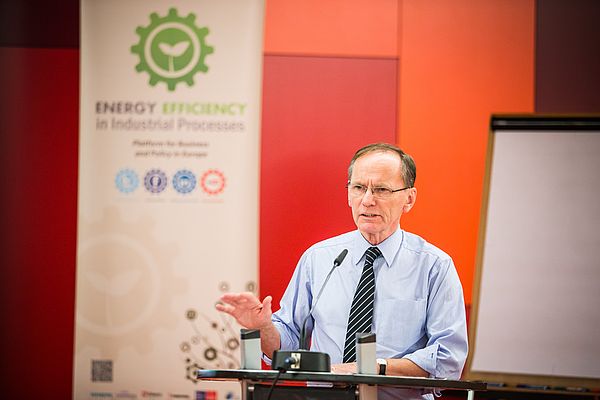While the industrial sector was in the energy efficiency policy wilderness for many years, that has changed significantly in the past four or five years. There are many reasons, which we will not go in depth here. Importantly, the adoption of the EU Energy Efficiency Directive with its measures for the industrial sector has been crucial in Europe. Also there has been growing realisation that improved energy efficiency really can help business to be more competitive while at the same helping with the region's energy security amongst many other benefits.
While this is important for the European Union, many will not realise how it is influencing other non-EU countries. Member countries of the Energy Community Treaty should be adopting the Energy Efficiency Directive this autumn. These are countries that are in the pre-accession process and so must adopt the EU "acquis" as it is called. These countries range from Albania to Ukraine and include all the countries of the Western Balkans. The other country that will adopt the Energy Efficiency Directive is Turkey. It is also on the pre-accession process but through a different, direct approach with the European Commission.
But for EU member states or the others, what is the EED bringing to the industrial sector?
First of all, there is a realisation of good measurement of how energy is used. Thus, the role of energy audits has strengthened. There is the need for both detailed energy audits as well as stand-alone pre-audits, also called walk-through energy audits. For example, in Turkey, both are being used. The development of the methodology for walk-through energy audits has been supported by UNIDO, the United Nations Industrial Development Organisation. While Turkey has a large industrial sector - and some of the sub-sectors are the largest in Europe - and has a long history of undertaking detailed energy audits, the methodology is being strengthened by support from the United Nations Development Programme.
Promoting energy audits of all sizes also helps strengthen energy audit companies, many of them being energy service companies that provide third-party financing. In all countries, the importance of good energy management has also gained priority. The implementation of the voluntary international standard ISO 50001 is happening in all countries. Establishing the culture of on-going energy management practices within companies is taking hold.
There is also a growing realisation that we cannot only focus on large energy-intensive industries, as the Emissions Tradition Scheme does. Small and medium-sized enterprises (SMEs) really matter. While individually their energy consumption may not be much of a factor at the national or regional level, collectively their total consumption is important. And their financial health is important. This improves their competitiveness, creates or maintains jobs and provides many other benefits. Again, going back to Turkey, it is encouraging that the World Bank has created a US$200 million financing facilities for SMEs. And in the European Union, the European Investment Bank and others have also been trying to support SMEs improve their energy performance.
The Energy Efficiency Directive is also promoting waste heat recovery in industry. This is a big boost for cogeneration facilities. No doubt we will be discussing in the future the progress that is being made in the sector, but we have to be encouraged by the developments that are underway.
By Rod Janssen, EiD and Chairman of EEIP Finance Consortium
























































